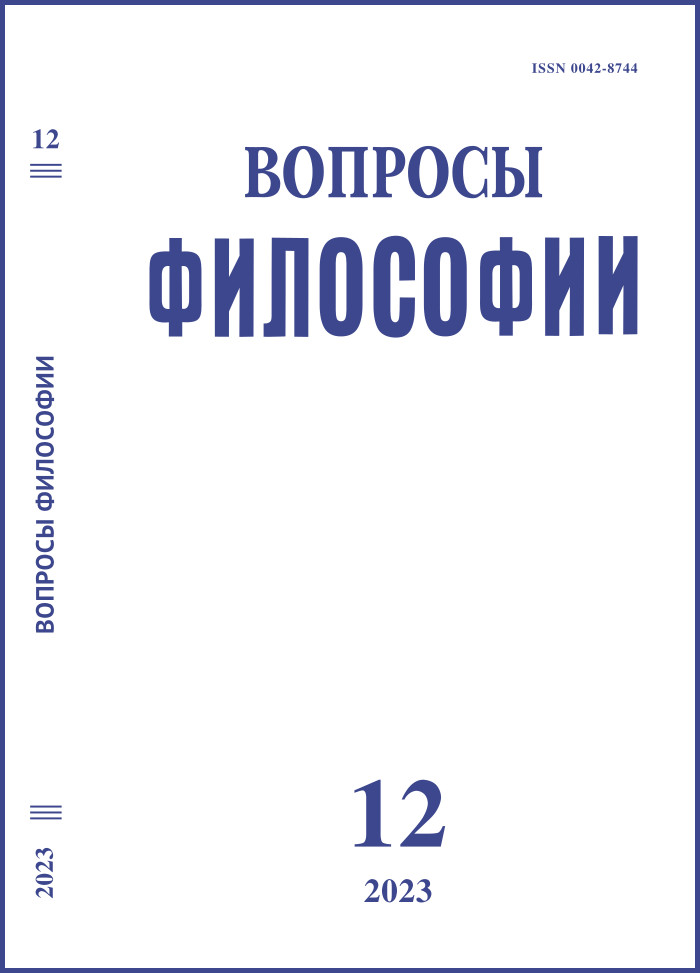Н.И. Жинкин в философско-феноменологической «сфере разговора»: трансдисциплинарность и интерсубъективность
DOI:
https://doi.org/10.21146/0042-8744-2023-12-5-11Ключевые слова:
Н.И. Жинкин, Г.Г. Шпет, Гуссерль, «сфера разговора», трансдисциплинарность, интерсубъективность, феноменология.Аннотация
Ученик Г.Г. Шпета, Н.И. Жинкин активно продолжил феноменолого-герменевтические исследования, однако был вынужден уйти в позитивную науку. Тем не менее его феноменологическая школа позволила ему приобрести уникальный методологический опыт, который результировался в его трансдисциплинарной исследовательской программе, направленной на комплексное изучение интонации как «звучащей речи» и как выражения смысла. Феноменологические основания его программы просматриваются во всех ее практических приложениях. Исследование архивных рукописей Жинкина открывает его «сферу разговора», позволяет показать, что несмотря на внешний отход от исследований в области философии (и особенно феноменологии) его трансдисциплинарная исследовательская программа в качестве основания содержит феноменологически ориентированную концепцию философии слова Г.Г. Шпета. При этом Жинкин своеобразно трансформирует эту концепцию, de facto транслирует ее в разных научных дискурсах. Присутствие указанной философской установки в работах Жинкина демонстрируется в статье в ходе аналитического рассмотрения идейной преемственности его научных интересов, позволяет нам актуализировать методологию трансдисциплинарности в культурно-исторической эпистемологии и показать значение интерсубъективности (разрабатываемой в феноменологии) для развития современных научных коллабораций.

